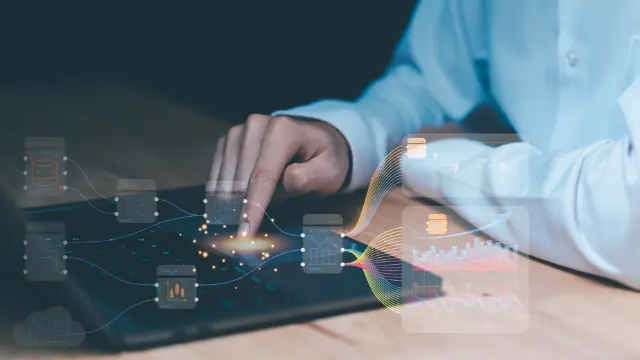Embrace Marketing Campaign Automation for a Seamless Hospitality Experience
In the ever-evolving hospitality landscape, marketing campaign automation has emerged as a game-changer. With the increasing complexity of marketing channels and the need for personalized guest experiences, hoteliers are turning to technology to streamline their campaigns and drive results. Python, AI, and cloud-based solutions offer powerful tools for automating repetitive tasks, improving accuracy, and enhancing guest engagement.

Python, AI, and Cloud: The Power Trio for Marketing Campaign Automation
Python is a versatile programming language that is ideally suited for developing unattended bots for marketing campaign automation. These bots can be programmed to perform a wide range of tasks, such as:
- Sending automated emails and social media messages
- Scheduling and posting content
- Tracking campaign performance
- Generating reports
Attended bots, on the other hand, require human interaction to complete tasks. They can be used to assist with tasks such as:
- Answering customer inquiries
- Providing personalized recommendations
- Upselling and cross-selling products and services
Cloud platforms offer a number of advantages over traditional RPA/workflow tools orchestrators. They are more scalable, reliable, and secure. They also offer a wider range of features, including:
- Pre-built connectors for popular marketing platforms
- Built-in AI capabilities
- Serverless computing
- Pay-as-you-go pricing
AI can play a vital role in marketing campaign automation by improving accuracy and handling edge cases. For example, AI can be used to:
- Identify and target the right audience for each campaign
- Personalize content based on individual preferences
- Detect and prevent fraud
Specific AI techniques that can be used to enhance marketing campaign automation include:
- Image recognition: Can be used to analyze images and identify objects, such as products or logos.
- Natural language processing (NLP): Can be used to understand the intent of text, such as customer inquiries or feedback.
- Generative AI: Can be used to generate creative content, such as marketing copy or social media posts.

Building the Marketing Campaign Automation Solution
The process of marketing campaign automation can be broken down into a number of sub-processes, including:
- Planning and strategy
- Content creation
- Campaign execution
- Performance tracking and analysis
Each of these sub-processes can be automated using Python and cloud-based solutions.
1. Planning and strategy
The first step in marketing campaign automation is to develop a plan and strategy. This includes identifying your target audience, defining your campaign goals, and selecting the right channels to reach your audience.
Python can be used to automate tasks such as:
- Gathering data on your target audience
- Analyzing market trends
- Identifying potential partners
2. Content creation
Once you have a plan in place, you need to create the content for your campaign. This includes writing copy, designing visuals, and developing videos.
Python can be used to automate tasks such as:
- Generating personalized content
- Creating social media posts
- Scheduling content
3. Campaign execution
Once your content is ready, you need to execute your campaign. This includes sending emails, posting on social media, and running ads.
Python can be used to automate tasks such as:
- Sending automated emails
- Scheduling social media posts
- Tracking campaign performance
4. Performance tracking and analysis
Once your campaign is running, you need to track its performance and analyze the results. This information can be used to improve your future campaigns.
Python can be used to automate tasks such as:
- Collecting data on campaign performance
- Generating reports
- Identifying areas for improvement
Data security and compliance
Data security and compliance are important considerations for any business, but they are especially important for businesses in the hospitality industry. Hotels collect a lot of personal data from their guests, so it is important to have strong security measures in place to protect this data.
Python can be used to implement a variety of security measures, such as:
- Encryption
- Authentication
- Authorization
Advantages of using Python over no-code RPA/workflow tools
There are a number of advantages to using Python over no-code RPA/workflow tools for marketing campaign automation. These advantages include:
- Flexibility: Python is a very flexible language that can be used to automate a wide range of tasks.
- Scalability: Python is a scalable language that can be used to automate complex campaigns with a large number of tasks.
- Cost-effectiveness: Python is a free and open-source language, which makes it a cost-effective option for businesses.
Why Algorythum takes a different approach
Most BPA companies rely on pre-built RPA tools because they are easy to use and require no coding knowledge. However, these tools can be limiting and can often lead to performance issues.
Algorythum takes a different approach by using Python to develop custom marketing campaign automation solutions. This approach gives us the flexibility to create solutions that are tailored to the specific needs of our clients. We also have a team of experienced Python developers who can ensure that our solutions are scalable, reliable, and secure.
If you are looking for a marketing campaign automation solution that is flexible, scalable, and cost-effective, then Python is the right choice for you. Algorythum can help you develop a custom solution that meets your specific needs.

The Future of Marketing Campaign Automation
The future of marketing campaign automation is bright. As AI and other technologies continue to develop, we can expect to see even more powerful and sophisticated solutions emerge.
Some of the potential possibilities for extending the implementation of marketing campaign automation include:
- Using AI to personalize campaigns even further. AI can be used to analyze customer data and preferences to create highly personalized campaigns that are more likely to engage customers.
- Using AI to automate creative tasks. AI can be used to generate creative content, such as marketing copy and social media posts. This can free up marketers to focus on other tasks, such as strategy and analysis.
- Using blockchain to improve data security and compliance. Blockchain is a distributed ledger technology that can be used to securely store and share data. This can help to improve data security and compliance for marketing campaign automation solutions.
If you are interested in learning more about the future of marketing campaign automation, I encourage you to subscribe to our blog. We regularly publish articles on the latest trends and developments in the field.
You can also contact our team to get a free feasibility and cost-estimate for a custom marketing campaign automation solution. We would be happy to discuss your specific needs and help you develop a solution that meets your goals.

Algorythum – Your Partner in Automations and Beyond
At Algorythum, we specialize in crafting custom RPA solutions with Python, specifically tailored to your industry. We break free from the limitations of off-the-shelf tools, offering:
- A team of Automation & DevSecOps Experts: Deeply experienced in building scalable and efficient automation solutions for various businesses in all industries.
- Reduced Automation Maintenance Costs: Our code is clear, maintainable, and minimizes future upkeep expenses (up to 90% reduction compared to platforms).
- Future-Proof Solutions: You own the code, ensuring flexibility and adaptability as your processes and regulations evolve.









